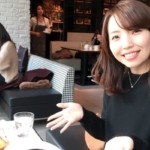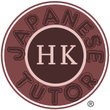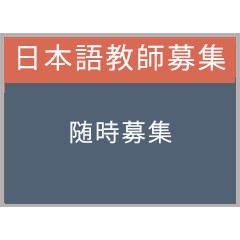Private Japanese Lessons Hong Kong
Part Time Japanese Tutor Kana

Native Part Time Japanese Teacher KANA
Japanese Teaching Experience 1 Year
Native Language Japanese
Language Ability Communicate in English
Born Gunma – Japan
Teaching Area Central, Causeway Bay, TST, Jordan, NT. etc
Japanese Courses Provided by Kana
Hong Kong Native Part Time Japanese Tutor KANA
Hello. I’m KANA of “Hong Kong Japanese Tutor”.Two months have passed since I came to Hong Kong.I love Hong Kong since I was a high school student and I have visited about 20 times for sightseeing.
I love to travel and I have traveled to both Inside Japan, and abroad a lot.I used to work for travel agent company in Japan for about 5 years. I’m the right person to consult if you are going to Japan.I can recommend Japanese famous tourist spots and popular hot spa.
I will be happy if I could support your Japanese study! Let’s have fun and study together!I am looking forward to seeing you!!
皆さんこんにちは。”Hong Kong Japanese Tutor”のKANAと申します。香港に来て2ヶ月経ちました。私は高校生の時から香港が大好きで、20回くらい観光で来たことがあります。また旅行が大好きで海外国内問わず、たくさん旅行に行ったことがあります。
約5年間旅行会社に務めていたので、日本に旅行へ行きたいとお考えの方は、ぜひお待ちしております。有名な観光スポットや人気の温泉などおすすめ致します!
みなさんの日本語の勉強を応援したいです!楽しみながら、一緒に勉強しましょう!みなさんにお会いできるのを楽しみにしております。
Private Japanese Lessons and Personalised Programs
パソコンを持っていないので、本などを利用するつもりです。
I will teach you using books. Also, I am planning to take a class focusing on conversation.
Ask KANA Teacher Japanese Learning Questions
KANA先生へ「~から」・「~より」の使い分けについて、ご説明してください!
KANA先生’s Answer:
「より」は比較を表します。
例 私より姉のほうが大きい。
「から」は起点を表します。
例 東京から香港は飛行機で4時間かかります。
KANA先生へ 「もっと」・「さらに」の使い分けについて、ご説明してください!
KANA先生’s Answer:
「もっと」は同じものの程度を多くすることを表します。
例 もっと大きな声で話してください。
「さらに」はある段階から次の段階へ行くことを表します。
例 さらに一人増えた。
KANA先生へ 「たくさん」・「大勢」の使い分けについて、ご説明してください!
KANA先生’s Answer:
「たくさん」は数量が多いことを表します。
例 本を読む時間がたくさんある。
「大勢」は多くの人を表します。
例 大勢の人が訪れた。
KANA先生’s Answer:
日本の食文化について
日本では、ごはんを食べる時「いただきます」、食べ終わったら「ごちそうさまでした」と挨拶をするのが習慣です。これは食べ物には命が宿っており、その命を頂くという意味と、感謝の意味が込められています。
また日本ではごはんを食べる時に箸を使うことが一般的ですが、箸の使い方には様々なマナーがあります。もっとも有名なものは、「箸渡し」と呼ばれるもので、箸から箸へと料理を渡すことです。これは絶対にやってはいけません。理由は火葬された遺骨を箸から箸へと渡し遺壷に納める習慣があるからです。その時と同じ所作をするのは縁起が悪いとされています。
マナーを守れば、一緒に食べる相手と楽しく食事ができると思います!!


Stay in Touch
RSS
Facebook
Twitter
Google +1